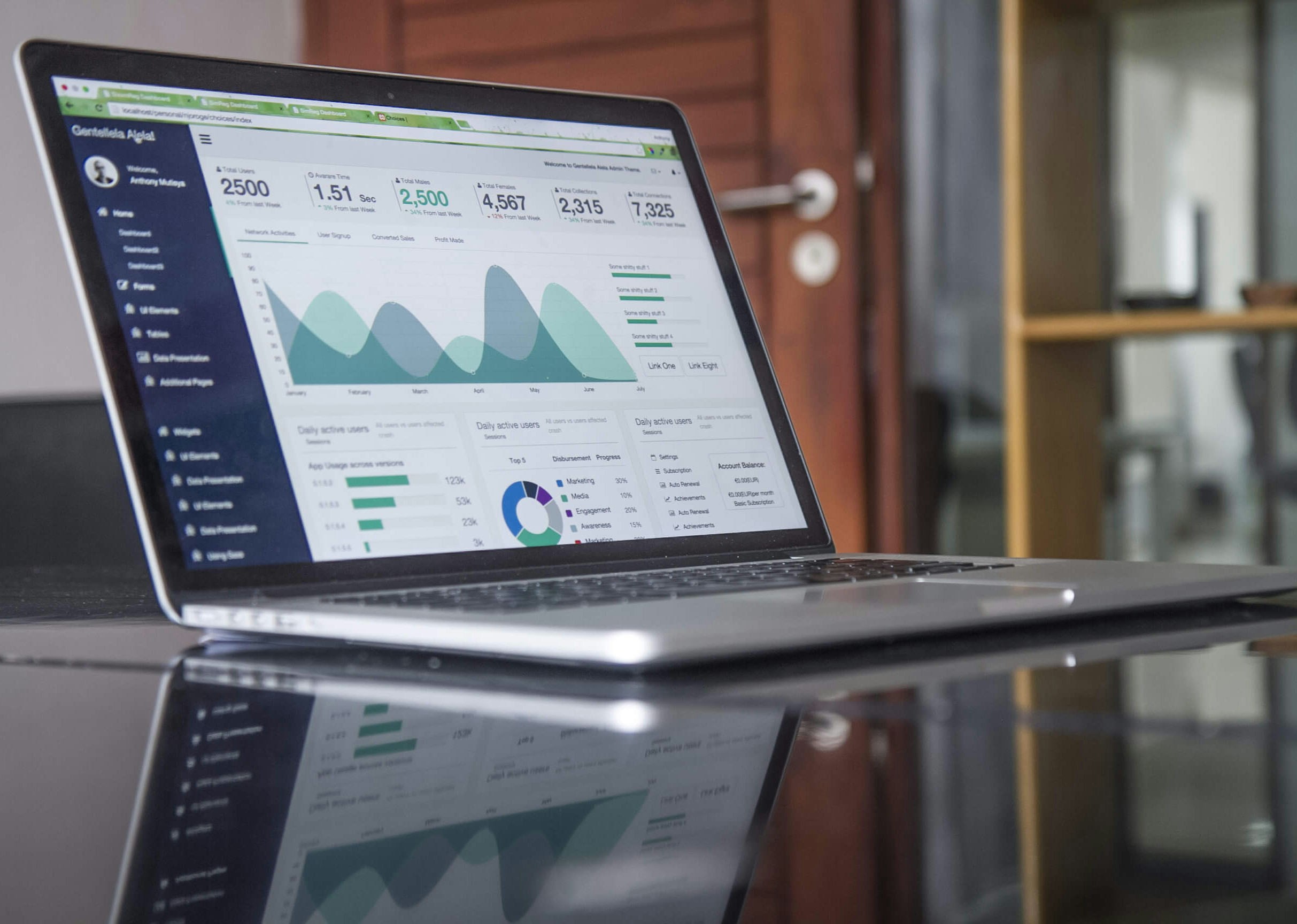Customer Segmentation Analysis is vital for businesses that enhance customer loyalty through efficient data management. Imagine having a panoramic view of your customers' preferences and behavior, allowing you to tailor personalized experiences that naturally cultivate loyalty. In this blog, we explore the capabilities of Customer Data Platforms and how they can help you master Customer Segmentation Analysis.
Looking to Increase and maintain customer loyalty through efficient data management? Rengage.ai 's solution, Drive Loyalty and Growth, is a powerful asset in achieving this goal. This tool effectively enables you to leverage customer segmentation analysis, creating tailored strategies that foster deep customer connections and long-term loyalty.
What is a Customer Data Platform (CDP)?

A Customer Data Platform (CDP) is a piece of software that consolidates data from multiple tools to create a single centralized customer database containing data on all touch points and interactions with your product or service. This database can be segmented in a nearly endless ways to create more personalized marketing campaigns. The main benefit of a CDP is having a comprehensive, persistently updated view of the customer.
How does a CDP differ from a CRM or DMP?
A CDP differs from a Customer Relationship Management (CRM) system because it centralizes customer data from multiple sources and allows for segmentation. A Data Management Platform (DMP) is also different as it is designed to serve advertisers and media buyers and does not focus on individual-level data. A CDP creates a single, easy-to-understand customer profile by uniting data from various touch points. This profile is usable to other systems, such as Facebook ads platforms or other marketing tools.
How can a CDP benefit companies?
A CDP allows businesses to understand their customers better and adjust their marketing strategy accordingly. For example, a company can use a CDP to segment its customer data to create more personalized marketing campaigns. Marketers can collect data from touch points like Facebook, the company’s website, email, and any other place a customer might interact with the company.
This data is consolidated into a unified customer profile and used to create customized marketing campaigns. Through segmentation, businesses can better understand their audience and create more personalized marketing campaigns.
What are the key capabilities of a CDP?
Three essential capabilities of a CDP are identity resolution, trait and audience building, and activation. A CDP's identity resolution feature unifies user history across various devices and channels into a single customer view for each user.
The trait and audience-building capability synthesizes data into traits and audiences for each customer, including users displaying intent, and integrates this into overall account activity. Activation allows businesses to push user—and account-level audiences to various tools in their stack to personalize real-time outbound messaging.
What Is the Primary Purpose of a Customer Data Platform?

CDPs help unify customer data to make marketing efforts more effective. An intelligent, holistic view of your customer can help you make customer interactions, communications, and engagements more relevant. Many CDPs now feature more advanced capabilities, such as governance and continuous analytics. A CDP makes combining a trusted customer profile easy and adding intelligence from internal, external, and third-party sources.
A CDP makes the data easy to access and easy to use. These can include deep analytics, marketing activation, and broader customer experience initiatives. You can then share that trusted data with other systems and processes. You can also use that data to inform marketing segmentation, personalization, and next best actions.
Here are a few things you can do with an enterprise CDP:
- View individual customers, both existing and prospective, from many perspectives.
- See customers in the context of their relationships, households, social networks, and B2B hierarchies.
- Extract context from web chat, email, and phone data. Then attach it to customer records
- Apply AI and machine learning to customer behavior so you can infer attributes, attitudes, lifecycle events, and more
Streamlining Customer Journeys
We provide a comprehensive solution for managing and enhancing customer journeys, delivering insights and measurable outcomes with no code. We accelerate your customer journey from onboarding, activation to conversion and churn. Enabling customers to unlock revenue from their existing user. With Rengage, you can get insights into your segments, run campaigns with an intuitive journey manager, and get insights to measure how your journeys impact users conversion through our Journey Moments and Journey Builder features.
- Journey Moments: insights into your micro-segments
- Journey Builder: intuitive multi-channel marketing automation
- Insights prediction and attribution.
Book a free demo to learn about how you can transform customer interactions into personalized experiences that drive loyalty and growth.
Related Reading
- Customer Data Platform Tools
- Customer Data Infrastructure
- Omnichannel Analytics
- Customer Data Integration
- Predicting Customer Behavior
- Marketing Data Platform
- Customer Data Platform Vs Data Management Platform
- Customer Data Platform Use Cases
- Best Customer Data Platform
- How To Choose Cdp
10 Essential Customer Data Platform Capabilities

1. Customer Data Unification
CDPs ingest all types of customer data from various sources, creating a unified customer profile that updates continuously.
2. Data Processing Across Multiple Formats and Types
CDP's can ingest data in any format without needing data transformation, collecting raw, event-level data.
3. No Timelines on Data Retention
CDP's provide consistent data management and storage without limitations on data expiration.
4. Machine Learning and AI Capabilities
CDP's offer AI and ML capabilities for deriving actionable insights from customer data.
5. Dynamic Profiles
CDP's use machine learning and AI to create dynamic customer profiles based on behavior and attributes.
6. Personalized Experiences
CDP's enable personalized marketing programs and messages, ensuring customers receive relevant content.
7. Data Scalability
CDP's can ingest and process billions of events daily, scaling as your data management strategy evolves.
8. Customer Journey Flexibility
CDP's can adapt to changes in customer journeys and integrate with various applications to activate customer data.
9. Privacy and Security
CDP's provide enterprise-grade security, including encryption, authentication, and regulation compliance.
10. Quick Time to Value
CDP's offer quick implementation, turnkey integrations, and professional services to get you up and running fast.
Related Reading
- Customer Retention Automation
- Customer Data Integration Best Practices
- Real Time Customer Segmentation
- Chat CDP
- Customer Data Platform Implementation
- Benefits Of A Customer Data Platform
- Customer Segmentation Solutions
- Omnichannel Measurement
- AI Customer Segmentation
- AI CDP
- Customer Data Platform GDPR
- Customer Data Platform Costs
- CDP Personalization
4 Types of Customer Data Platforms

1. Marketing Cloud CDPs
Marketing cloud CDPs are designed to seamlessly integrate with existing tool sets within specific software ecosystems like Adobe, Salesforce, SAP, Microsoft, or Oracle. These CDPs collect and manage data, create single customer views, and connect with corresponding tools to enhance marketing campaigns. They play nicely with proprietary software systems and are particularly useful for organizations deeply entrenched in a specific software ecosystem.
2. CDP Engines and Toolkits
CDP engines and toolkits allow organizations to customize CDP functionalities based on specific organizational needs. These tech-heavy solutions are usually utilized by IT teams to build tailored applications on top of existing CDPs. While these solutions are not as user-friendly as other CDP types, they provide flexibility and customization beyond the standard capabilities of most CDPs. These solutions tend to come with a higher price tag.
3. Marketing Data-Integration CDPs
Marketing data-integration CDPs focus on data operations, offering robust data manipulation and governance capabilities in a user-friendly interface. Both IT and marketing teams can collaborate easily within these CDPs, enabling seamless data handling and campaign segmentation across multiple channels. This CDP type lacks comprehensive analytics views, which may limit decision-making capabilities.
4. CDP Smart Hubs
CDP smart hubs are designed for marketers, providing a plug-and-play solution with a focus on personalization and campaign execution. These smart hubs leverage user behavior and event data to trigger tailored responses in real-time. By analyzing user data and creating predictive models, smart hubs enhance customer journeys by tailoring experiences to individual customers.
How to Choose a Customer Data Platform

1. Data Management
When evaluating a Customer Data Platform (CDP) solution, it is crucial to assess its data management capabilities. A CDP's ability to ingest data from various databases and channels and process streaming data is vital for the success of your marketing initiatives. Ensure the CDP seamlessly integrates with your existing tech stack and effectively manages all customer data.
2. Analytics and Intelligence
Analyze the analytics and reporting features offered by the CDP solution. The availability of intuitive analytics tools enables your team to gain valuable insights into customer behavior and preferences. These insights can then be used to create targeted marketing campaigns and improve overall customer experience.
3. Cross-Channel Orchestration
Consider the cross-channel orchestration capabilities of the CDP solution. A robust CDP should provide the functionality to unify the customer experience across all touchpoints. By leveraging data syndication, you can deliver consistent messaging and personalized experiences to customers, regardless of the channel they engage with.
4. Privacy, Security, and Compliance
Prioritize the privacy, security, and compliance features of the CDP solution. It is essential to safeguard customer data and adhere to regulations and best practices concerning data management. Ensure that the CDP enables you to easily manage and remove customer data in compliance with government regulations, ensuring customer trust and minimizing risks.
5. Platform and Services
Evaluate the features and services offered by different CDP solutions. Compare the platform capabilities, such as scalability, flexibility, and ease of use, to determine which solution aligns best with your business requirements. Assess the level of service the vendor provides, including support, training, and ongoing updates, to ensure a successful implementation and utilization of the CDP.
Related Reading
- CDP Marketing Automation
- Customer Data Platform Vs Marketing Automation
- Ecommerce Cdp
- Totango Competitors
- Centralized Marketing Data
- Customer Data Management Best Practices
- Segment Alternatives
- Blueconic Cdp
- Emarsys Competitors
- Actioniq Competitors
Create Personalized Experiences That Drive Loyalty and Growth with Rengage — Book A Free Demo Today
Customer segmentation is a crucial aspect of any marketing strategy. It involves dividing customers into groups based on common characteristics such as behavior, demographics, or preferences. Rengage enables businesses to create and manage customer segments effectively.
By leveraging the platform's intuitive Journey Builder feature, marketers can design and execute marketing campaigns tailored to each segment, ensuring that messages resonate with the right audience. This personalized approach fosters a deeper customer connection, increasing brand loyalty and customer retention.
Predictive Insights and Data-Driven Decision-Making with Rengage
Data plays a significant role in customer segmentation and personalization. Rengage's Insights Prediction feature empowers businesses to make informed decisions based on predictive analytics. By analyzing customer interactions data, businesses gain valuable insights into customer behavior and preferences.
This data-driven approach enables businesses to anticipate customer needs and tailor their marketing efforts accordingly. Marketers can leverage these insights to create targeted campaigns that effectively engage customers and drive conversions.
Multi-Channel Marketing Automation with Rengage
In today's digital landscape, customers interact with brands across various touchpoints. Rengage's Journey Builder feature offers a comprehensive solution for multi-channel marketing automation. Marketers can create seamless customer journeys that span different channels, ensuring a consistent brand experience across platforms.
By reaching customers where they are most active, businesses can increase their chances of engagement and conversion. The platform's intuitive interface simplifies the process of creating and deploying multi-channel campaigns, enabling marketers to optimize their marketing efforts effectively.
Measurement and Attribution with Rengage
Tracking the success of marketing campaigns is essential for refining strategies and improving performance. Rengage's Journey Moments feature provides businesses with insights into micro-segments, enabling them to measure the impact of their campaigns on user conversion.
By analyzing customer interactions at a granular level, marketers can identify successful strategies and areas for improvement. This data-driven approach to measurement and attribution allows businesses to continually optimize their marketing efforts, driving better results and maximizing ROI.
